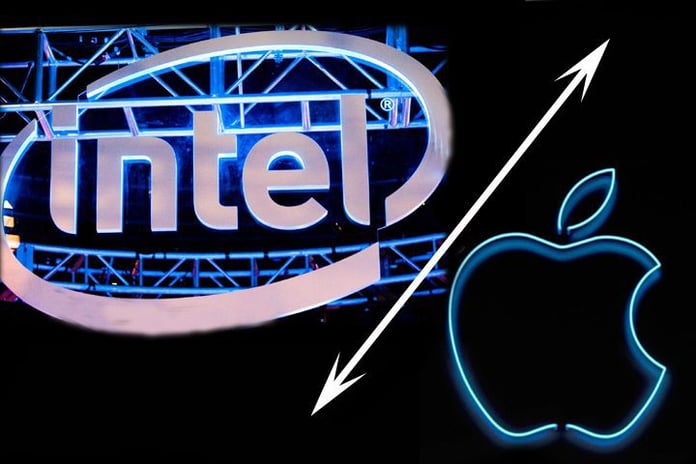This week Apple announced it wanted a divorce from Intel, and this could be a really good thing for Intel. Apple has a powerful brand, and for close to two decades, Intel executives tried to get Apple to shift to Intel technology.
Finally, in the early 2000s, they were successful. But Intel Chairman and CEO Andy Grove, who largely architected the effort, later indicated it was one of the biggest mistakes he’d ever made. I had a chance to talk to Andy about this before his death in 2016, and he was not a fan of Apple or its founder–not even a little bit.
Let’s talk about why this breakup will make Intel stronger.
Why It’s Better Not Having Apple as a Client
NPS (net promoter score) forces a process in which companies rank customers into two primary groups. This is a metric used in customer experience programs to measure the loyalty of customers to a company–customers who are of value to a company and those who aren’t. In the latter category are customers who, no matter the experience, aren’t loyal (they just buy on price), don’t engage and are problematic. If you are customer-facing, you know well those customers who are a pleasure to work with and those who pay little, demand a lot, are poorly organized, yet have a strong belief that every problem is your fault.
You can spend an excessive amount of time with these customers to improve satisfaction and loyalty, but their goal is manipulation, and the more efforts you make, the weaker they see you. The result can be a toxic relationship in which neither side is happy, and the time you spend with them is both highly aggravating and wasted.
Relationships like the one Intel and Qualcomm once had with Apple are like marriages. There are good ones and bad ones. In the good ones, you are working together to accomplish a common goal, and it feels (within the project) like you are one company. When the inevitable problem occurs, the focus isn’t on who to blame but fixing the problem and moving on. You have each other’s backs, and honesty and integrity define the process.
Then there are bad partnerships where the partner is always looking for greener grass; they believe you work for them and that any problem is your fault. They feel strongly that their needs massively exceed the importance of yours and that any margin or profit should be exclusively theirs. They also tend to be abusive.
You may recall that just a few months ago, Apple, to force Qualcomm to lower their chip pricing to them, allegedly created a five-year plot to destroy their partner. While doing this, it passed confidential information to Intel from Qualcomm that effectively compromised Intel’s smartphone modem efforts, eventually forcing Intel out of that market. Apple subsequently bought much of what was left from Intel at a discount, ensuring that Apple users will eventually get an inferior modem.
Apple has a history of requiring pricing that is unprofitable for vendors–even with vendors like Intel. They provide technology to a variety of PC companies they demanded and got special treatment. For instance, with Intel, this meant assembling a special team that focused only on Apple’s unique needs, and these folks had to be isolated from much of the rest of Intel. This likely made Apple the least profitable, and, I expect, often unprofitable for Intel. Since Apple competed against other Intel customers, this means Intel was effectively losing money to compete with itself.
Finally, if you look across all of Apple’s partnerships, none of their partners are, once in the partnership, pleased with Apple. Both Cisco and IBM needed specialized hardware for their respective channels and didn’t get it, so the real benefits of those partnerships never really emerged. IBM had partnered with Apple twice before, creating the failed companies Kaleida and Taligent.
Wrapping Up: Intel Is Better Off
One thing I regularly used to hear in Silicon Valley was that you partner with Apple once. The company brand and revenue is attractive, but it is allegedly so abusive to suppliers that, given a choice, many would prefer to have avoided the experience. Like a bad marriage, or just hitting your head against the wall, getting out may seem painful but far less destructive than staying in.
Intel and the industry are best served by Apple going its own way, allowing Intel to better focus on the rest of its OEMs and increasing the health of the market.
Apple may regret this move, because while they were an Intel partner, Intel was neutral in the Mac vs. PC battle. That’s about to change, and Apple may not have factored in the resulting unanticipated collateral damage as Intel pivots from partner to competitor.
Rob Enderle is a principal at Enderle Group. He is a nationally recognized analyst and a longtime contributor to eWEEK and Pund-IT.
